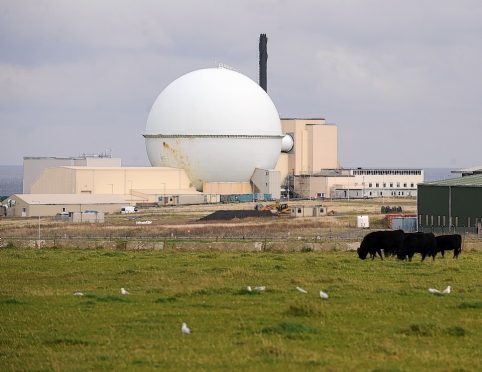Road around Wick Airport will be regularly shut over the next 18 months so nuclear waste can be taken be flown to the US.
Plans to transport highly enriched uranium (HEU) from Dounreay in Caithness to the US emerged late last year.
Politicians and activists have condemned the move, warning that flying the material is excessively dangerous.
The Nuclear Decommissioning Authority (NDA) has remained silent on the issue, but an £18million upgrade of the airport was recently carried out to make it suitable for larger planes.
And, now Highland Council has published a road closure order which reveals minor routes around the airport will be closed over the coming months.
The closures could happen at any time from today, and will last up to five hours each time.
A spokeswoman at Dounreay said she could neither confirm nor deny that nuclear waste from the redundant power station would be flown from Wick.
Former Prime Minister David Cameron confirmed earlier this year, after talks with President Obama, that it was the UK’s intention to transport uranium from Dounreay to the South Carolina. It will be swapped for other forms of uranium to be shipped to Europe which, it is believed, will be used in producing medical isotopes.
Caithness, Sutherland and Easter Ross SNP MP Paul Monaghan has described the deal to transport the waste by plane “morally reprehensible”.
And Highlands and Islands Green MSP John Finnie last night said many people would be surprised to find out about the road closures – but that the disruption was nothing compared to the risks involved with flying the waste.
“Many will be astonished that it is considered appropriate to move, let alone fly, this waste material from Dounreay,” he said.
“The local disruption is nothing compared to the risks any transit poses. This waste should be retained at Dounreay.”
The council’s local area leader Gillian Coghill said: “We were not briefed about this, which is absolutely shocking.
“I complained to our ward manager, the council’s roads department and the council itself. This is no way to run a council.”
After the P&J alerted Mrs Coghill to the public notice, ward manager Alex Macmanus has e-mailed local community councillors to inform them about the road closure order.
On the convoys themselves, she said: “I’m in two minds. The material has to go somewhere. They’re already being shipped out. Whether they’re safe in the air, I don’t know.”
Anti-nuclear campaigners claim local roads are unsuitable for the transport of such materials.
A spokeswoman for the police said: “We’re assisting a partner agency with an operation to facilitate abnormal road movements and a temporary traffic restriction has been requested as a contingency.
“Should the road be closed for any time, officers will be there to facilitate emergency and local access, ensuring no-one is put at any risk. For security reasons no further details can be provided.”
Independent nuclear consultant John Large raised concerns about the transport of the material.
He said if there was an accident it would involve an extremely vulnerable and potentially radiologically significant material.
“The radiological consequences of even a relatively small amount of this material would be very serious,” he said.
“In terms of nuclear safety, the International Atomic Energy Agency recognises that the transportation of radioactive materials is the one at most risk and is most prone and vulnerable to terrorist attack.
“The risk in transport by aircraft is the fuel being engulfed in fire, the packages breaking down and the fuel igniting.”
Mr Large added that it was incumbent on Dounreay to provide sufficient information for the public to come to an informed judgement about the move.
“It doesn’t matter whether the material is for civil or military stock, it presents the same risk,” he said.
